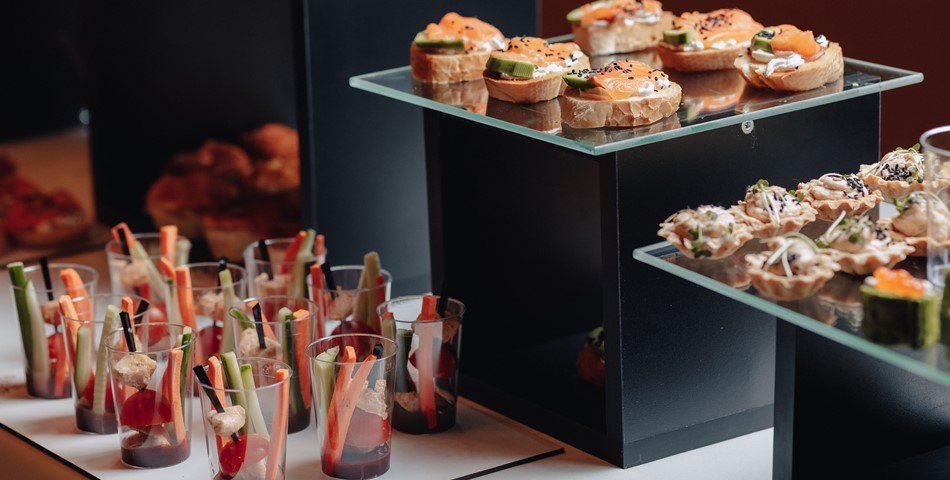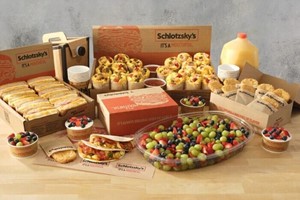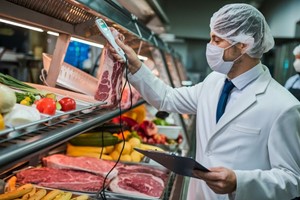The catering and hospitality industry is experiencing significant transformations driven by evolving consumer preferences, technological advancements, and a heightened focus on sustainability. For businesses in the food industry, staying abreast of these trends is essential to remain competitive and meet client expectations.
Embracing Technology for Operational Efficiency
Incorporating technology into catering operations has shifted from a luxury to a necessity. A notable 30% of enterprise-level caterers plan to invest in order management systems this year to streamline processes and reduce inefficiencies associated with manual tracking and communication. Additionally, the adoption of Customer Relationship Management (CRM) software has been shown to boost revenue by 41%, as it enables better tracking of client interactions and preferences. Artificial Intelligence (AI) is also making inroads, assisting caterers in predicting demand, optimizing menus, and automating customer service, thereby enhancing overall operational efficiency.
Adapting to Changing Client Expectations
Clients now demand more personalized and seamless experiences from their caterers. With 75% of catering orders occurring online, a user-friendly digital ordering system is critical. Furthermore, 80% of companies order catering at least once a month, with 32% doing so weekly, highlighting the importance of reliability and consistency. Offering customizable menus that cater to diverse dietary needs and preferences has become the standard, with vegetarian options included in 22% of catering orders. Caterers who can deliver on these expectations are more likely to secure repeat business and foster client loyalty.
Focus on Sustainability and Zero-Waste Practices
Sustainability has become a central concern in the catering industry. Clients are increasingly seeking caterers who adopt zero-waste initiatives and environmentally friendly practices. Strategies such as designing menus that repurpose excess ingredients, partnering with organizations to redistribute unused food, and investing in biodegradable or reusable serving ware are gaining traction. Visible efforts like setting up composting or recycling stations at events not only reduce waste but also demonstrate a caterer's commitment to environmental responsibility, appealing to eco-conscious clients.
Interactive and Personalized Dining Experiences
The demand for interactive food stations is on the rise, as clients seek to create memorable and engaging event experiences. Live chef stations, build-your-own bars, and food and beverage pairing stations allow guests to customize their meals and interact directly with the culinary process. These setups not only enhance guest satisfaction but also provide opportunities for social media engagement, as attendees share their unique dining experiences online.
Leveraging Social Media and Content Creation
A robust social media presence has become vital for caterers aiming to attract and retain clients. Establishments like Fallow in London have successfully integrated content creation into their brand strategy, engaging millions of viewers with behind-the-scenes videos and showcasing signature dishes. This approach not only increases visibility but also fosters a connection with potential clients, ultimately driving bookings and business growth.
Navigating Economic Challenges
The catering industry faces economic pressures, with companies like Compass Group projecting slower profit growth and exiting smaller markets to focus on core areas. Despite these challenges, the overall catering market is expected to grow at a compound annual growth rate (CAGR) of 6.2%, reaching $124 billion by 2032. Caterers can navigate these economic fluctuations by investing in technology, diversifying service offerings, and prioritizing customer satisfaction to maintain a competitive edge.
In summary, the catering and hospitality industry is undergoing dynamic changes influenced by technological integration, evolving client expectations, sustainability initiatives, and innovative dining experiences. By embracing these trends, businesses can enhance their operations, appeal to modern clients, and achieve sustainable growth in a competitive market.
foodHQ Staff











